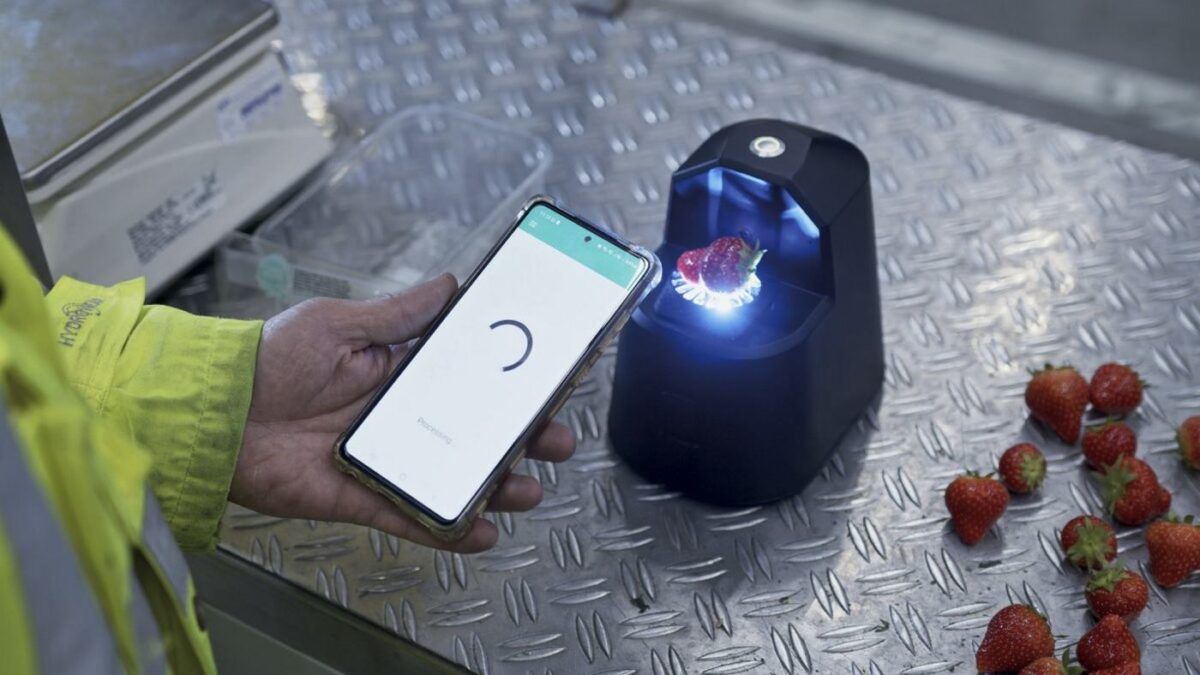Futuristic Food Scanner

A balding man once sagely remarked, “Fruit is a gamble.” (Seinfeld reference fyi). Imagine if producers and retailers could assess the odds before fruits hit supermarket shelves.
A new device developed by a British company, now available in supermarkets, distribution centers, and supply-chain hubs, uses light to scan fruit and detect its molecular freshness. Algorithms analyze water, sugars, and other compounds, such as ethyls and alcohols, to calculate the remaining days of freshness accurately. This enables suppliers and retailers to make informed decisions about the optimal utilization of each piece of fruit.
The company, named OneThird, aims to address the significant issue of food waste, which accounts for one-third of the food produced by humans. The extensive transportation of produce contributes to unpredictably perishable goods. OneThird’s food scanner aims to reduce this waste, benefiting not only those facing hunger globally but also minimizing financial losses for major grocery chains. Additionally, the technology helps mitigate the environmental impact of wasted produce, which contributes to increased methane levels in landfills, potentially affecting the planet over nine years.
OneThird’s portable scanners, initially developed in the medical sector, are now deployed to tackle challenges in the food supply chain. Marco Snikkers, the founder and CEO, highlighted the broken nature of the current system, where 40% of food waste is attributed to fresh produce due to a lack of knowledge about shelf life.
Currently capable of determining the shelf life of strawberries, tomatoes, avocados, and blueberries, OneThird plans to release an update to include grapes, bananas, mangoes, and raspberries. Each fruit requires individual study to establish its unique molecular fingerprint indicating proximity to rotting.
Accurate readings from the scanner empower grocery store workers to discount fruit at the right time or assign precise best-by dates to produce. In cases of impending spoilage, the store can proactively collaborate with food banks to redistribute items before they go bad.